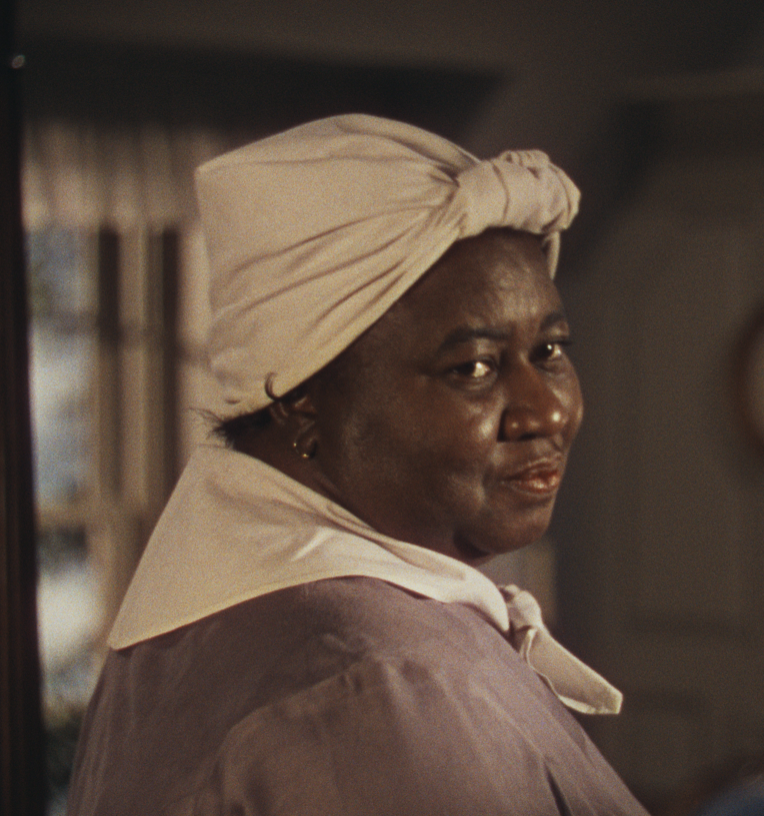- Film And TV
- 02 Oct 23

The Gone With The Wind actress became the first Black person to be nominated for and win the esteemed Academy award in 1940. Gifted to Howard University following her death in 1952, the plaque was displayed in a case before it went mysteriously missing. Now, half a century since its disappearance, the award has been replaced via a moving ceremony highlighting the star’s life and work.
During a ceremony at Washington D.C.’s Howard University yesterday, the late Hollywood actress Hattie McDaniel’s legacy was highlighted as her 1940 missing Oscar award was replaced. The replacement award was presented to the college’s Chadwick A. Boseman College of Fine Arts in a ceremony entitled “Hattie’s Come Home,” a moving dedication of the actress’ life’s work and timeless legacy.
Taking part in the ceremony were Jacqueline Stewart, president of the Academy Museum of Motion Pictures, and Teni Melidonian, executive VP of Oscars strategy at AMPAS. Actor Phylicia Rashad, the outgoing dean of the Boseman College, opened the evening with a personal account of her own experience as an artist and Howard undergrad. Rashad shared that she was personally inspired by viewing the McDaniel’s award in its case at the college, and is happy that it is finally back for new generations to draw inspiration from.
McDaniel’s great-grandnephew Kevin John Goff, a filmmaker himself, concluded his speech with a moving poem about discrimination entitled “Black Not Accepted.” Rhea Combs, the first of curatorial affairs at the Smithsonian’s National Portrait Gallery, discussed the Academy Museum’s travelling exhibition which she co-curated, “Regeneration: Black Cinema 1898-1971,” which includes McDaniel as a case study.
Combs said during the ceremony, “She represented so many individuals, had done great work and had agency which we felt was important to include. It highlights her travails within an ecosystem of other established actors and thespians.”
In 1940, McDaniels made history by becoming the first Black person to be nominated for an Oscar award, earned for her memorable performance and portrayal of Mammy in the 1939 landmark film Gone With The Wind.
Advertisement
Upon accepting the award – a plaque, as was the protocol for supporting role awards at the time – McDaniel tearily proclaimed, “This is one of the happiest moments of my life. I sincerely hope I shall always be a credit to my race and to the motion picture industry. My heart is too full to tell you just how I feel. And may I say thank you and God bless you.”
 McDaniel in the 1939 film Gone With The Wind
McDaniel in the 1939 film Gone With The WindAt the ceremony, racism was still so prevalent in the country that McDaniels, after accepting her prestigious award, was led back to join her guest at their separate, segregated table in the back of the theatre. This was one of many forms of disrespect the actress tolerated in order to chase her dreams: until her death from Breast Cancer in 1952, McDaniels appeared in more than 300 films, many of which she went uncredited for.
It would take fifty years for another Black actress to win the award, with Whoopi Goldberg becoming the second Black actress to win an Oscar for her supporting role in 1990’s Ghost. A Black actress did not win the Best Actress award until 2022, awarded to Halle Berry.
Missing for nearly fifty years with no explanation for its disappearance, McDaniel’s award has finally been replaced and returned to the university she once bequeathed it to. The award ceremony showed clips from Gone With The Wind and several of McDaniel’s other films, along with her acceptance speech at the 1940 Academy Awards ceremony.
“Her resilience through the adversity she faced across her life and career, including the impact of racial segregation on the night of her Academy Award win is truly remarkable,” the Academy stated of the replacement award. “Her unforgettable performances continue to capture audiences to this day and her contributions on and off screen have paved the way for those who have followed in her footsteps.”










